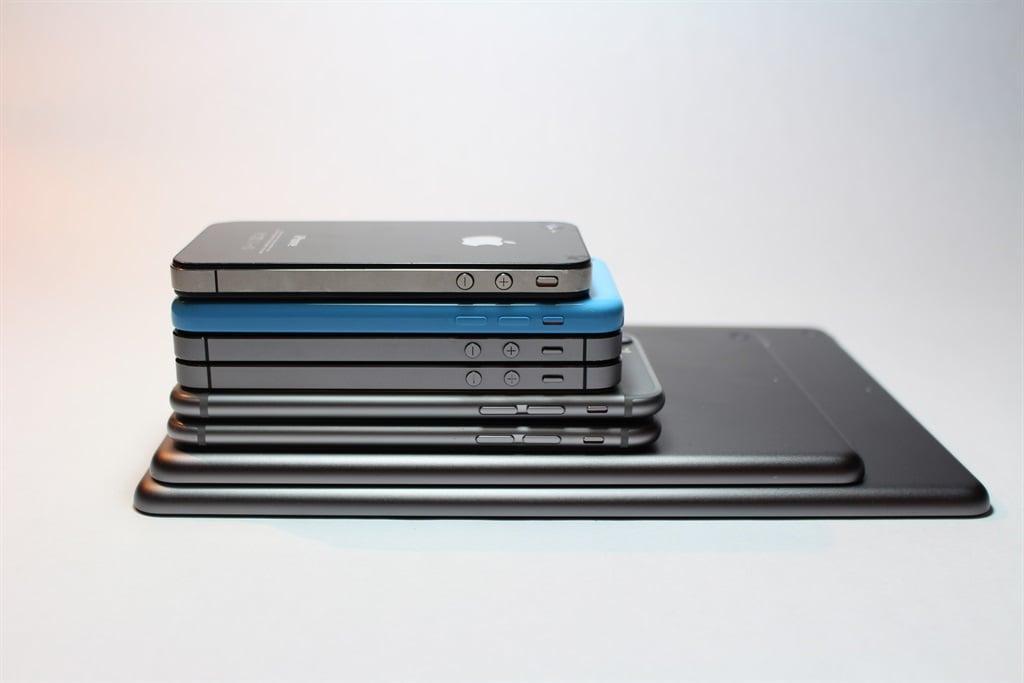Africa-Press – South-Africa. South Africa produces a lot of electronic waste, or e-waste – and hardly any of it gets recycled.
E-waste is the fastest-growing waste stream in the country, with each South African generating an average of between six and seven kilogrammes per year. And depending on who you ask, we’re only recycling between 7% and 14% of this.
It’s not to say that your drawer full of old cellphones and disused laptops is directly responsible for South Africa’s growing e-waste problem, but it can’t do any harm to empty it and look into doing something productive with the devices.
Selling your old phones
For starters, you could sell a working device to a new owner. You’ll get more for your old phone if you sell it privately, but in South Africa, that comes with inherent safety risks.
Instead, many cellphone and technology companies in South Africa are willing to pay (less, and in vouchers) for your not-too-outdated phones.
Although their advertising campaigns likely overstate how much you’ll get for your used phone – and the deal might only yield you a few hundred or thousand rand, usually in the form of a voucher or credit for immediate purchase – taking your phone to one of these stores is a pretty safe and easy way to earn a bit of pocket money or assist with an upgrade.
Most have cut-off dates for the age of devices they will accept. Still, the earliest trade-in offer we could find was for an iPhone 5s, which was released in 2013.
If you happen to have one in near-perfect condition, it could get you the grand sum of R240 at WeFix.
A more realistic item that you might find lurking in a drawer – an entry-level iPhone X with some signs of light use – will get you around R3 300 in vouchers from the iStore.
Most stores offering cellphone trade-ins have online calculators to estimate what your old device is worth. Here are three worth comparing:
If your device isn’t totally beyond repair, still switches on, and is going to a new home or being refurbished, there are some important steps to take before you part with it.
Back up any wanted data to the cloud, remove any PIN lock, deactivate “find my device” or Find My iPhone settings, erase all personal data, and then reset it to factory settings before removing your SIM card.
Importance of recycling phones
Stores likely won’t accept very dated phones or those with obvious issues, such as cracked screens or dead batteries – but that’s not a reason to leave them in a drawer. Even broken devices contain valuable components – and, in some cases, toxic substances.
Environmental concerns about phones that eventually end up in landfills are significant.
Most contain substances such as mercury, lead, cadmium, and even arsenic, and devices piling up can cause issues if these products leach into the soil and contaminate water sources.
According to the EPR Waste Association of South Africa (eWASA), electronic waste should never go straight into a regular rubbish bin because “it contains chemicals and hazardous materials that can pollute the earth”.
eWASA CEO Keith Anderson says as a Producer Responsibility Organisation, eWASA works with a network of member companies that collect, refurbish, repair and recycle electronic and electrical equipment.
He says:
“eWASA and its producer members have been working this year to establish new take-back schemes and support projects to encourage the recycling of e-waste and other recyclables, including lighting, portable batteries and packaging materials.”
But if it’s a purely economic argument you’re after, it’s worth noting that each device has trace elements of scarce and valuable minerals. From one million recycled cellphones, it’s possible to recover 16 000 kilogrammes of copper, 350 kilogrammes of silver, 34 kilogrammes of gold, and 15 kilogrammes of palladium.
How to recycle old phones and e-waste
The good news is that despite South Africa’s low e-waste recycling rate, ensuring these items don’t end up in landfills is much easier.
eWASA says that rather than throw e-waste like old phones, batteries, lightbulbs, vapes, charging cables, and old computers into regular rubbish bins, you should put them in a separate recycling bag for collection.
If a company handles recycling in your area, this should be enough to clear your conscience and ensure it does less harm when it’s out of your sight.
Mobile network Vodacom also offers a recycling and redistribution solution for old phones through its RedLovesGreen campaign. If the device still works and is suitable, the company will donate it to a deserving school – if not, the company will recycle it through an accredited company.
If you don’t have access to an at-home recycling service, eWASA recommends taking it to an e-waste collection or refurbishment centre. It lists all affiliated e-waste companies on a convenient map at the bottom of its home page.
For More News And Analysis About South-Africa Follow Africa-Press






